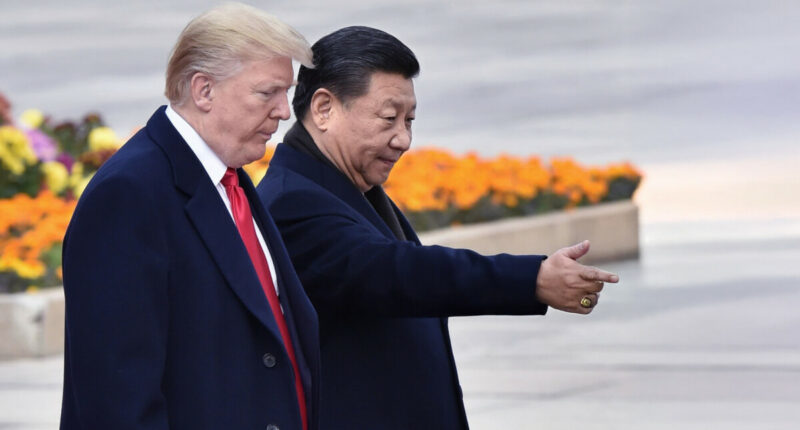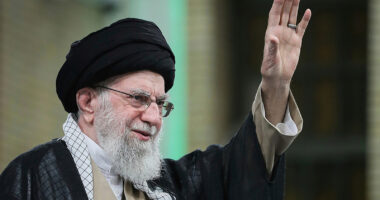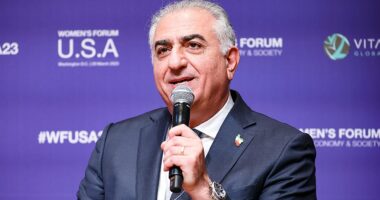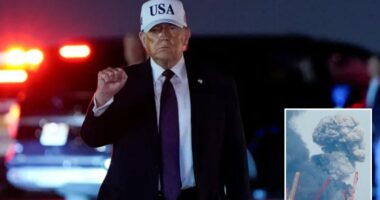Share this @internewscast.com
President Donald Trump’s unexpected announcement on Monday, August 25, 2025, to allow 600,000 Chinese students into U.S. colleges as part of ongoing trade negotiations with Beijing has sparked widespread concern, marking a significant reversal from earlier restrictions and leaving many questioning how this aligns with an “America First” agenda, especially given the potential national security risks and economic implications for American students and universities.
Why it matters:
This decision, occurring amid fraught U.S.-China trade relations characterized by considerable tariffs and visa revocations, incites frustration among those who perceive it as a betrayal of American interests, possibly inundating universities with students from a communist regime while displacing U.S. citizens from educational opportunities.
It poses serious concerns regarding national security, as the increased numbers could include individuals associated with the Chinese Communist Party, and it challenges the economic rationale of supporting institutions often criticized as anti-American, sparking fears that this move might prioritize trade agreements over the welfare of American families and the education system’s integrity.
Driving the news:
[Edit] Trump made the announcement during a White House press briefing, framing it as a gesture to improve U.S.-China relations.
- The policy would increase the current 270,000 Chinese students in U.S. universities to 600,000, reversing Secretary of State Marco Rubio’s May 2025 plan to revoke visas for Chinese nationals linked to the Communist Party or sensitive research.
- This comes after a 145% tariff on Chinese goods, met with a 125% retaliatory tariff, with negotiations pausing further levies in May, though Trump recently threatened a 200% tariff on Chinese magnets.
- The move precedes a meeting with South Korean President Lee Jae Myung and hints at a possible summit with Chinese President Xi Jinping, with Trump touting improved economic ties compared to the Biden era.
Catch up quick:
The announcement comes after a year of heightened U.S.-China tensions, featuring trade disputes and student visa restrictions, which are now relaxed as Trump seeks to utilize education policy for diplomatic advantages.
The intrigue:
Commerce Secretary Howard Lutnick appeared on Laura Ingraham’s Fox News show, where Ingraham interrogated him on the policy’s compatibility with “America First.” She challenged,
“With all due respect, how is allowing 600,000 students from the Communist country of China putting America first?” and continued pressing, “But why are you helping Harvard? UCLA, Berkeley. Y’all helping those schools, why? They’re essentially factories of anti-American propaganda, now they’re receiving a big influx of cash because of the Chinese students…I just don’t understand it. Those are 600,000 spots that Americans won’t get.”
Lutnick responded, “If you didn’t have those 600,000 students, you’d empty them from the top, all the students would go up to better schools, and the bottom 15% of universities would go out of business in America. President Trump’s taking a rational economic view.” This exchange underscores the tension between economic pragmatism and national security, as Lutnick’s defense proposes the policy is meant to support struggling universities, yet it does not address Ingraham’s fundamental concern about prioritizing foreign students over Americans. The debate prompts questions about whether this move is a calculated trade concession or a mistake that could jeopardize U.S. sovereignty, especially in light of past occurrences of Chinese students being coerced to engage in espionage, as noted by independent voices like Steven Crowder.
Independent Takeaways:
Steven Crowder of Louder with Crowder offers a critical perspective, warning that the 600,000 Chinese students could pose significant national security risks due to the Chinese Communist Party’s (CCP) influence. He cites recent cases in the UK where Chinese students were forced to spy on sensitive subjects like politics, technology, and science, and a 2023 incident at Georgetown where a student’s parents were harassed by Chinese police over their child’s activitie
Crowder humorously yet pointedly argues that every Chinese student is a potential spy, easy to identify with proper scrutiny, and highlights how American universities may already be succumbing to CCP pressure. He expresses frustration that this policy could exacerbate vulnerabilities, urging viewers to recognize the long-term threat to American liberty and sovereignty, regardless of trade benefits.
What they’re saying:
- “Lutnick says we need 600K Chinese students or ‘the bottom 15% of colleges would go out of business.’ I can’t be the only one asking what use those bottom 15% are…” posted Libby Emmons.
- “600k Chinese students while our kids get priced out of education? Trump’s trade talks are selling out America to the CCP. Disgraceful,” posted by @SteveFranssen.
The bottom line:
Trump’s decision to open the door to 600,000 Chinese students is a troubling move that prioritizes trade negotiations over American interests, frustrating those who value national security and educational access for U.S. citizens. While it may aim to thaw relations with China and support struggling universities, it risks exposing the country to espionage and displacing American students from college spots, undermining the “America First” promise.
This policy not only raises concerns about the influence of a communist regime on U.S. soil but also burdens taxpayers and families already grappling with rising education costs, potentially leaving a legacy of weakened sovereignty and economic disadvantage that could take years to unravel.
















